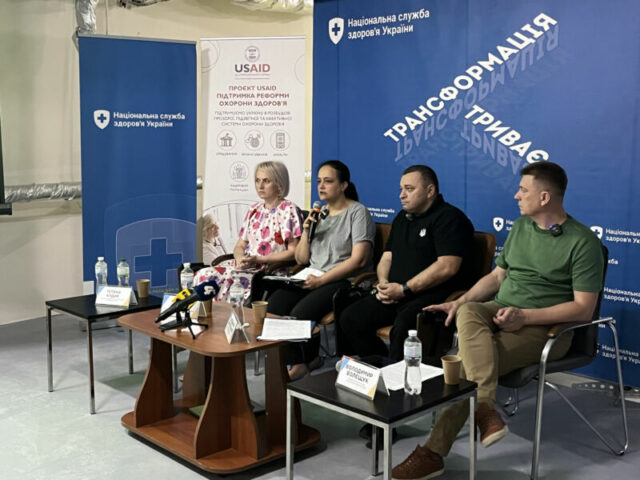Critical Shortcomings in Medical Care for Stroke Patients in Ternopil Region
Recent evaluations conducted by the National Health Service of Ukraine (NHSU) have uncovered serious inadequacies in the care of stroke patients at medical facilities in the Ternopil region. This review was part of the NHSU’s Medical Guarantee Program, which aims to uphold and enhance the quality of healthcare services across Ukraine.
Alarmingly Low Rates of Essential Treatment
According to NHSU Chairwoman Natalia Husak, the automated assessments painted a troubling picture at the Kremenets District Hospital. Out of 128 patients diagnosed with strokes during the initial quarter, only **two** received thrombolytic therapy—a vital treatment necessary to dissolve blood clots and restore blood flow. This figure is not just low; it signals a critical failure in adherence to established medical protocols.
Imagine being a stroke patient, perhaps someone’s mother or father, needing immediate treatment to maximize recovery chances. When life hangs in the balance, even a moment of delay can have irreversible consequences. Timely care can lead to better outcomes; in fact, studies show that patients who receive thrombolytic therapy within the first few hours of a stroke can see significantly reduced long-term disabilities.
Documentation and Equipment Deficiencies
Meanwhile, at Chortkiv Central City Hospital, the monitoring revealed concerning gaps in essential documentation regarding the electronic health system. Notably, there were issues with the licensing of neuroimaging equipment, which is critical for accurately diagnosing neurological conditions. Without proper documentation and functioning equipment, the chances of timely and effective interventions sharply decrease.
The Importance of Quality Medical Interventions
Husak pointed out that the monitoring process is essential in assuring quality medical services, especially for high-risk patients suffering from severe conditions such as heart attacks and strokes. **Quality of care directly affects both the recovery journey and the quality of life for patients**. A report from the American Heart Association highlights that rapid diagnosis and treatment significantly enhance survival rates and recovery quality in stroke patients.
A Call to Action for Stakeholders
The situation in Ternopil serves as a pressing wake-up call for healthcare leaders and policymakers. It is crucial that immediate steps are taken to address the highlighted deficiencies. Here are a few essential initiatives that need urgent implementation:
- Comprehensive Training: Enhance continuous education for medical staff focused on best practices and current protocols.
- Infrastructure Improvement: Invest in upgrading medical facilities and ensuring they are equipped with necessary technology.
- Protocol Compliance Monitoring: Establish stringent checks to ensure adherence to medical treatment protocols.
The findings from Ternopil not only raise eyebrows but also call for a sincere commitment to reform within the healthcare sector. For stakeholders, this is more than an administrative duty—it’s a moral obligation to ensure every patient receives the timely, effective care they deserve. As the community looks ahead, let’s channel this urgency into constructive action, working together to fortify the healthcare system and uplift the quality of life for all patients in the region.





